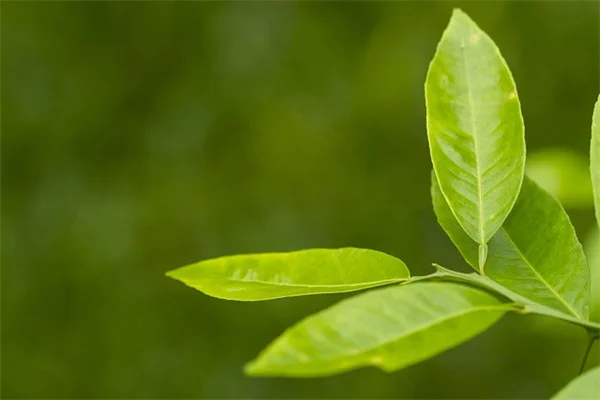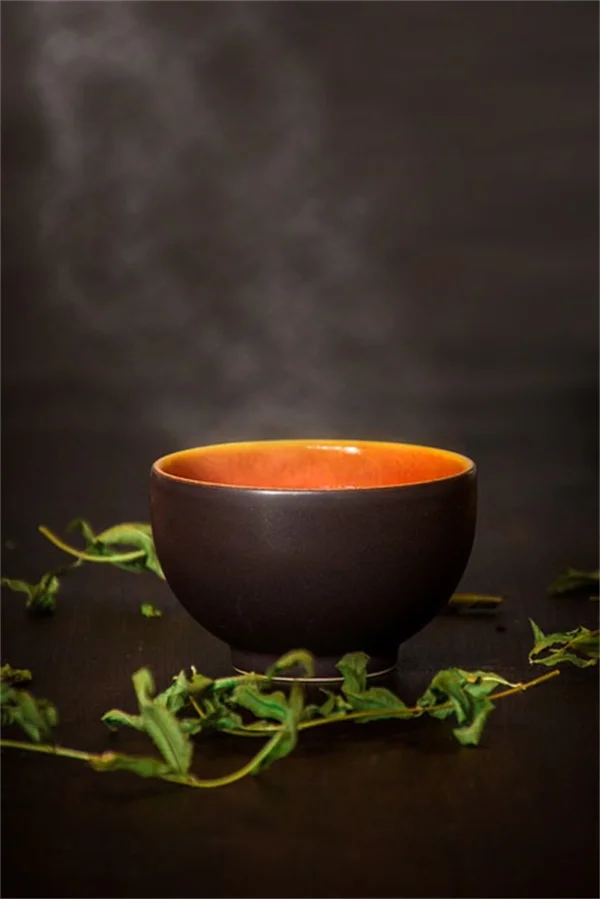Why does red wine give you headaches? The answer might surprise you! New research from UC Davis suggests that quercetin, a healthy antioxidant found in red wine, could be triggering those pounding headaches after just one glass. Here's the deal: when quercetin mixes with alcohol in your system, it messes with your body's ability to process the wine properly. Think of it like putting sugar in your gas tank - both are fine separately, but together they cause problems!We used to blame tannins or sulfites, but this groundbreaking study shows that quercetin may interfere with your liver's alcohol-processing enzyme, leading to a buildup of toxins that cause headaches, flushing, and nausea. The good news? Now that we're onto this, scientists are working on human trials to help us all enjoy wine without the pain. Stick around - we'll break down exactly how this works and what it means for your next glass of Cabernet!
E.g. :Stem Cell Therapy for MS: 5 Key Facts You Need to Know
Advertisement
- 1、Why Does Red Wine Give You a Headache?
- 2、Old Theories vs New Discoveries
- 3、The Science Behind Your Wine Woes
- 4、What's Next in Wine Headache Research?
- 5、Flavanols: Health Heroes or Headache Villains?
- 6、Your Burning Questions Answered
- 7、The Future of Wine and Health Research
- 8、Beyond Quercetin: Other Hidden Wine Headache Triggers
- 9、Wine Production Methods Matter More Than You Think
- 10、Practical Solutions Beyond Just Drinking Less
- 11、Myth Busting: Common Wine Headache Misconceptions
- 12、Emerging Research: The Gut-Wine Connection
- 13、Your Personal Wine Headache Action Plan
- 14、FAQs
Why Does Red Wine Give You a Headache?
The Mystery Behind That Throbbing Pain
Ever had that awful headache after just one glass of red wine? You're not alone! Scientists now think they've found the culprit - and it's not what you'd expect.
Meet quercetin, a flavanol that's actually good for you... until it mixes with alcohol in your system. This antioxidant, found in grapes and many healthy foods, might be sabotaging your happy hour. When quercetin teams up with alcohol in your body, it's like inviting two friends who don't get along to the same party - things get messy fast!
How Your Body Handles Red Wine
Here's what happens inside you:
Your liver has a special enzyme called ALDH2 that normally breaks down alcohol smoothly. But when quercetin enters the picture, it changes into a form that blocks this enzyme. The result? A buildup of toxic acetaldehyde that can make you feel awful.
| Symptom | How Common | When It Hits |
|---|---|---|
| Headache | Very common | Within 30 minutes |
| Flushing | Common | 15-45 minutes |
| Nausea | Some people | 30-60 minutes |
Old Theories vs New Discoveries
 Photos provided by pixabay
Photos provided by pixabay
What We Used to Blame
For years, we pointed fingers at:
Histamines - from grape skins
Tannins - that make your mouth feel dry
Sulfites - the preservatives in wine
But here's the thing - these suspects don't explain why some people get headaches from just half a glass while others can drink a whole bottle without issues. That's where the new quercetin theory comes in!
The New Kid on the Block: Quercetin
Did you know quercetin levels can vary dramatically between wines? Here's a fun fact: A California Cabernet might have 10 times more quercetin than a French Pinot Noir! This could explain why certain red wines hit you harder than others.
But wait - isn't quercetin supposed to be healthy? Absolutely! In normal circumstances, it's great for you. The problem only starts when it mixes with alcohol in your system. It's like how peanut butter and jelly are both delicious, but you wouldn't want them in your gas tank!
The Science Behind Your Wine Woes
How Researchers Cracked the Case
The story begins with Dr. Waterhouse chatting with a winemaker in Napa Valley. "He mentioned getting headaches from his own wine," Waterhouse recalls. "That got me thinking - what's really going on here?"
What followed was some brilliant detective work. The team discovered that when quercetin transforms in your bloodstream, it becomes a party crasher for your alcohol metabolism. This disruption creates a traffic jam of toxins that leads to those unpleasant symptoms.
 Photos provided by pixabay
Photos provided by pixabay
What We Used to Blame
Ever wonder why some wines affect you more than others? Here's the scoop:
Darker, bolder reds tend to have more quercetin. That rich Cabernet you love? Probably packed with it. Lighter reds like Pinot Noir? Much less. Next time you're choosing wine, you might want to consider this!
What's Next in Wine Headache Research?
Crowdfunding Science (Yes, Really!)
Here's something cool - this research got started through crowdfunding! The team wanted to explore this without waiting for traditional grants. "Headaches from wine aren't exactly a national emergency," Waterhouse jokes, "but they sure ruin a lot of date nights!"
Now that the initial findings look promising, the Wine Spectator Scholarship Foundation is funding human trials. These will give us clearer answers about which wines are most likely to cause problems.
What We Still Need to Learn
Can certain people process quercetin better than others? Why do some folks never get wine headaches? These are the million-dollar questions researchers hope to answer next.
Here's an interesting thought: Could your genes play a role? People of Asian descent often have a harder time processing alcohol due to ALDH2 variations. Might they be extra sensitive to quercetin's effects too?
Flavanols: Health Heroes or Headache Villains?
 Photos provided by pixabay
Photos provided by pixabay
What We Used to Blame
Flavanols have been health darlings for years, especially those in dark chocolate. In fact, searches for "flavanols" hit record highs in 2023! But as this research shows, context matters. What's beneficial in one situation might cause problems in another.
Dr. Brickman, a neuropsychology expert, puts it well: "Everything we eat has bioactive properties. The key is understanding how they interact in our unique bodies."
Practical Tips for Wine Lovers
While we wait for more research, here's what you can do:
1. Try different red wines to see which ones bother you less
2. Drink plenty of water - it helps flush out toxins
3. Eat before drinking - food slows alcohol absorption
4. Consider lighter reds if headaches are an issue
Remember, everyone's different. What gives your friend a headache might be fine for you. The key is paying attention to how your body responds!
Your Burning Questions Answered
Why Doesn't White Wine Cause These Headaches?
Great question! White wine contains much less quercetin because it's made without prolonged skin contact. The grape skins (where most quercetin lives) get removed early in white wine production. That's why you might tolerate white wine better even if reds give you trouble.
Are Some People More Sensitive Than Others?
Absolutely! Your genetics, overall health, and even what you ate that day can affect how you process quercetin and alcohol. Some people's livers handle the combination better than others. That's why your friend might drink the same wine without issues while you're reaching for aspirin.
The Future of Wine and Health Research
What's Coming Next in Studies
The upcoming human trials will focus on:
- Measuring headache responses to different wines
- Testing blood levels of quercetin and acetaldehyde
- Exploring genetic factors in sensitivity
- Developing potential solutions
Imagine a future where wine labels include quercetin content warnings! While we're not there yet, this research could lead to more informed choices for wine lovers everywhere.
Why This Matters Beyond Headaches
This isn't just about avoiding pain - it's about understanding how compounds in our food and drinks interact in our bodies. The insights from this research could apply to other areas of nutrition and health. Who knew solving wine headaches might teach us so much about human metabolism?
So next time you enjoy a glass of red, you'll know there's some fascinating science in every sip. Cheers to that - headache free, we hope!
Beyond Quercetin: Other Hidden Wine Headache Triggers
The Sugar-Alcohol Rollercoaster
You know that sugar rush you get from dessert wines? It's not just the sugar itself causing problems. When your blood sugar spikes and then crashes after drinking sweet wines, it can trigger brutal headaches. Your body basically goes on a metabolic rollercoaster ride it never signed up for!
Here's what's happening inside you: The alcohol makes your blood sugar drop faster than normal, while the sugar content gives a temporary high. This whiplash effect explains why you might feel fine during the wine tasting but wake up with a pounding head even without a hangover. Pro tip: If you're drinking sweet wines, pair them with protein-rich snacks to slow down absorption.
Dehydration - The Silent Headache Culprit
Wait, isn't wine mostly water? Yes, but alcohol is a diuretic that makes you lose more fluid than you take in. For every glass of wine, you might lose up to four glasses worth of water from your system!
This creates a perfect storm for headaches because:
1. Your brain temporarily shrinks from fluid loss
2. Blood vessels constrict to compensate
3. Electrolyte imbalances occur
The solution is simple but often ignored: Alternate every alcoholic drink with a full glass of water. Your future self will thank you when you wake up refreshed instead of reaching for painkillers.
Wine Production Methods Matter More Than You Think
Organic vs Conventional: Does It Affect Headaches?
Here's something fascinating - organic wines might actually cause fewer headaches for some people. Why? Fewer additives and pesticides that could trigger reactions. But before you switch your entire wine cellar, consider this comparison:
| Wine Type | Additives Used | Reported Headache Frequency |
|---|---|---|
| Mass-produced | 15-20 possible additives | Higher |
| Organic | 5-8 additives max | Lower |
| Natural/Biodynamic | 0-3 additives | Lowest |
Notice how fewer additives correlate with fewer headaches? It's not just marketing hype - your body can tell the difference!
The Oak Aging Factor
Ever noticed how some oaky Chardonnays give you headaches while stainless-steel fermented whites don't? Oak barrels introduce tannins and other compounds that can trigger reactions in sensitive individuals. New world wines tend to use more new oak than traditional European wines, which might explain why California Chardonnays hit some people harder than French ones.
Here's a fun experiment: Try the same grape variety aged differently (like an oaked vs unoaked Chardonnay) and see how your body responds. You might discover your personal oak tolerance threshold!
Practical Solutions Beyond Just Drinking Less
Strategic Wine Selection
Did you know that certain wine regions naturally produce lower-quercetin wines? Cool climate areas like Oregon's Willamette Valley or Germany's Mosel region tend to grow grapes with different flavonoid profiles. Next time you're wine shopping, look for these characteristics:
- Higher altitude vineyards
- Cooler climate regions
- Early harvested grapes
- Lighter extraction methods
These factors all contribute to lower levels of headache-triggering compounds. Your local wine shop staff can help identify bottles matching these criteria.
The Power of Food Pairings
You've heard "never drink on an empty stomach," but do you know why certain foods work better than others? Fatty foods create a protective lining in your stomach that slows alcohol absorption dramatically. Some superstar wine-pairing foods that fight headaches:
- Avocados (healthy fats)
- Nuts (protein + fat)
- Olive oil dips (slows absorption)
- Aged cheeses (contains tyramine blockers)
Ever notice how Mediterranean cultures drink wine with meals and rarely get headaches? There's centuries of wisdom in their food pairing traditions!
Myth Busting: Common Wine Headache Misconceptions
"Red Wine Headaches Are Always From Sulfites"
Let's settle this once and for all - sulfites get a bad rap they don't deserve. Did you know dried fruits often contain 10 times more sulfites than wine? If sulfites were the real culprit, eating apricots would give you worse headaches than drinking Bordeaux!
The truth is, only about 1% of the population has actual sulfite sensitivity. For everyone else, it's likely the quercetin-alcohol interaction or other factors we've discussed. Next time someone blames sulfites, you'll know better!
"Expensive Wines Don't Cause Headaches"
Oh how I wish this were true! Price tags don't determine headache potential - production methods and grape chemistry do. In fact, some premium wines have higher tannin and quercetin levels because they're made for aging potential.
Here's a funny story: A friend once brought a $200 Napa Cabernet to a dinner party, only to have half the guests complain of headaches later. Meanwhile, the $15 Spanish Garnacha was consumed headache-free all night. Moral of the story? Price guarantees pleasure, not protection from pain!
Emerging Research: The Gut-Wine Connection
Your Microbiome Might Be the Key
Exciting new studies suggest your gut bacteria play a role in how you process wine compounds. People with certain microbiome profiles might break down tannins and flavonoids more efficiently. Could probiotics be the future of wine headache prevention?
Early research shows that regular consumption of fermented foods (kefir, kimchi, sauerkraut) might improve alcohol metabolism. It's not definitive yet, but an interesting area to watch. After all, the French drink wine daily with fewer issues - maybe their cheese-rich diet is protecting them!
The Histamine Intolerance Factor
While we've downplayed histamines earlier, they do matter for a subset of people. Those with histamine intolerance (often linked to DAO enzyme deficiency) might react strongly to aged wines and meats. Symptoms include:
- Flushing
- Rapid heartbeat
- Headaches
- Nasal congestion
If this sounds familiar, try younger wines (like Beaujolais Nouveau) and see if you notice a difference. Your body might be trying to tell you something!
Your Personal Wine Headache Action Plan
Tracking Your Triggers
Want to become your own wine detective? Keep a simple journal with these details:
1. Wine type/region/vintage
2. Amount consumed
3. Food pairings
4. Headache timing/intensity
5. Other symptoms
After a few weeks, patterns will emerge. You might discover it's not red wine generally, but specifically Australian Shiraz that gets you every time. Knowledge is power - and in this case, pain prevention!
When to See a Professional
Most wine headaches are annoying but harmless. However, if you experience:
- Severe migraines
- Vision changes
- Nausea/vomiting
- Symptoms after tiny amounts
...it's worth consulting a doctor. You might have an underlying condition like histamine intolerance or alcohol sensitivity that needs proper management. Your health is worth more than powering through pain for a glass of wine!
E.g. :Why Does Red Wine Give Me A Headache | UC Davis
FAQs
Q: What exactly is quercetin and why is it in red wine?
A: Quercetin is a natural flavanol antioxidant found in grape skins - that's why it's more concentrated in red wines than whites. Normally, it's super good for you! It helps fight inflammation and protects your cells. But here's the twist: when quercetin meets alcohol in your body, it transforms into a form that blocks your ALDH2 enzyme. This enzyme is like your body's bouncer that kicks out alcohol toxins. When it can't do its job, those toxins build up and - bam! - headache city. The amount varies by wine type too - bold Cabs might have 10x more than light Pinot Noirs!
Q: How quickly do red wine headaches typically start?
A: Most people report headaches within 30 minutes of drinking red wine - way faster than a typical alcohol hangover. You might notice flushing even sooner, like 15-45 minutes after your first sip. This quick reaction is part of what made scientists suspect something more than just alcohol was at play. If you're sensitive, you might feel it after just half a glass! The timing suggests your body is reacting to that quercetin-alcohol combo almost immediately, rather than processing it overnight like a regular hangover.
Q: Are some people more likely to get red wine headaches than others?
A: Absolutely! Your genes play a big role here. People of Asian descent often have a harder time with alcohol metabolism due to ALDH2 variations - they might be extra sensitive to quercetin's effects too. But really, anyone can develop this sensitivity. Some folks never get wine headaches, while others can't touch the stuff. Your overall health, what you've eaten that day, and even stress levels can affect how your body handles the quercetin-alcohol combo. It's one of those "your mileage may vary" situations where personal biology makes all the difference.
Q: Why don't white wines cause these headaches as often?
A: Great question! White wines contain way less quercetin because they're made differently. With white wine, the grape skins (where most quercetin lives) get removed early in production. Reds soak with the skins longer to get that deep color and bold flavor - but that also means more quercetin ends up in your glass. That's why you might handle Chardonnay just fine even if Merlot leaves you reaching for aspirin. Rosé falls somewhere in between, which might explain why some people tolerate it better than reds but not as well as whites.
Q: What can I do to prevent red wine headaches?
A: Here are some pro tips from the research: First, try different reds to find ones that bother you less - lighter styles like Pinot Noir typically have less quercetin. Always drink water (one glass per wine glass) to help flush out toxins. Eating before drinking slows alcohol absorption, giving your body more time to handle that quercetin. Some people find taking an antihistamine before drinking helps, though scientists aren't sure why yet. And here's a fun fact - the same research team is working on identifying low-quercetin wines, so soon we might have better options!

